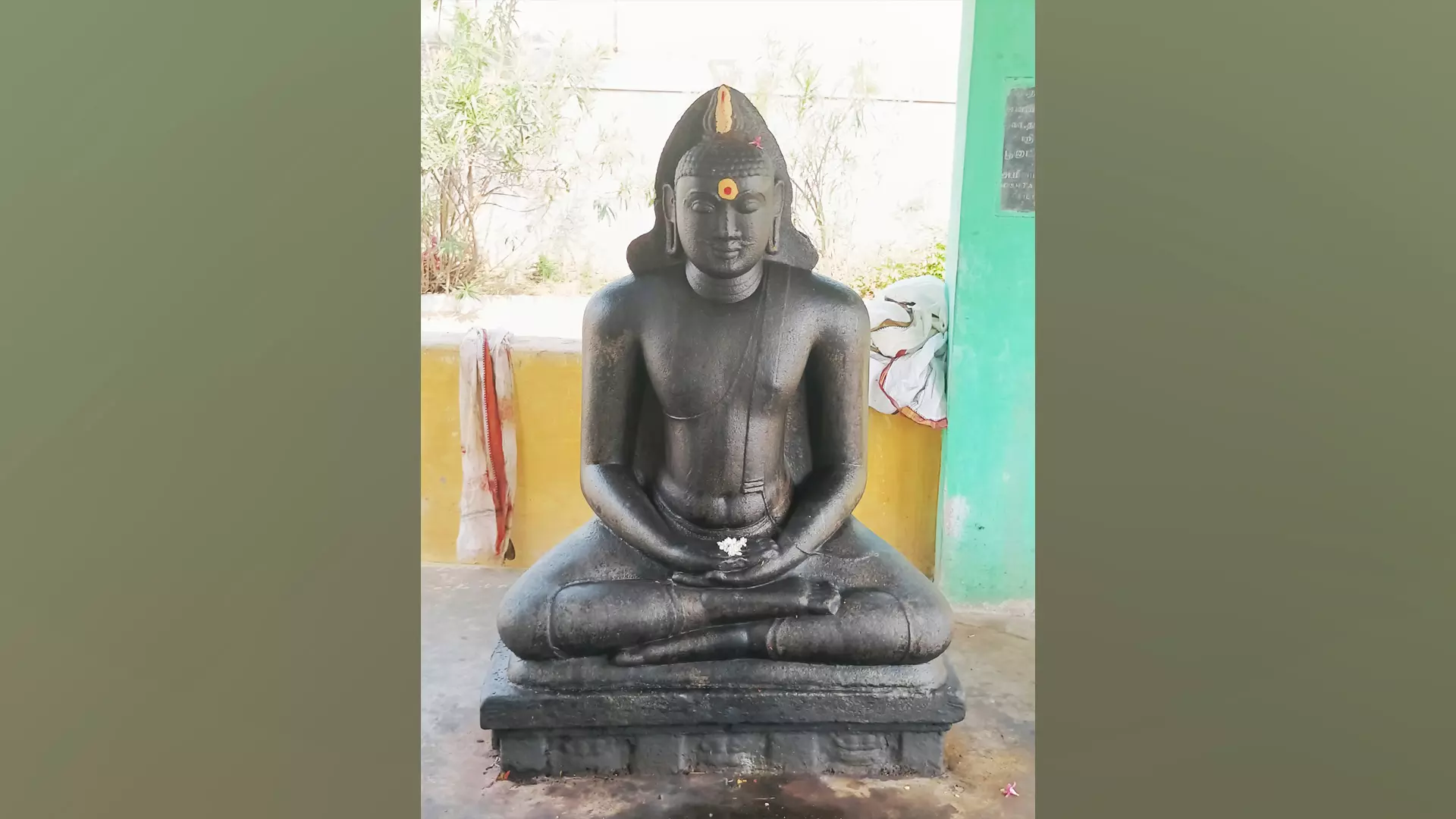
Discovery of ancient relics | Unravelling Tamil Nadu’s tryst with Buddhism
Excavations reveal Buddhist statues and shrines in Tamil Nadu. Are these ancient relics being ignored, and can their history be preserved?

In recent years, several Buddhist idols and structures have been discovered in Tamil Nadu, many of which were appropriated and converted into Hindu temples. The findings, particularly in districts like Salem, raise questions about India's historical religious shifts and the preservation of ancient Buddhist heritage. Despite a Madras High Court verdict two years ago, little has been done to restore the Buddhist identity of these temples.
Buddhist roots in Salem's temples
A particularly notable case is in Salem district, where a Buddhist shrine has been continuously treated as a Hindu temple known as Thalaivetti Muniyappan. Despite clear evidence that the shrine's statue depicts Mahalakshana Buddha—seated in a meditation pose on a lotus platform—the temple continues to hold Hindu rituals. “This statue is 100% a Buddhist Buddha statue,” states an expert familiar with the site, emphasising the undeniable Buddhist elements.
Historical evidence suggests this statue likely dates back to the 8th to 9th century, during the Pallava to Chola period. However, despite the historical and cultural significance, no meaningful steps have been taken by either the Hindu Religious and Charitable Endowments Department or the Tamil Nadu State Archaeology Department to acknowledge or preserve its Buddhist origin.
Buddhism's suppression in India
Historians like Romila Thapar have argued that Hinduism historically appropriated and destroyed Buddhist temples and shrines, a process that continues in some areas today. Gautaman, the general secretary of the South India Buddhist Vihar, believes that the Salem shrine is merely “the tip of the iceberg.” “If you try to renovate any Hindu temple today, you will only find Buddha statues,” he explains. This statement reflects the broader issue of Buddhist shrines being absorbed into Hindu practices and sites, often without acknowledgment of their Buddhist heritage.
“The God of the ancient people was Buddha,” Gautaman adds, reflecting on how Buddhism once thrived in India, only to be gradually overshadowed by Hinduism over centuries.
Buddha idols in Tamil Nadu
Tamil Nadu, historically a centre of Buddhist culture, has seen significant findings of Buddha idols over the years. Between 1856 and the 1930s, over 350 bronze Buddha idols were discovered in the Nagapattinam region, which was once home to thriving Buddhist communities. Many of these idols are now displayed in the Government Museum in Chennai. Other discoveries, such as the footprint of Buddha unearthed in Pallavaneshwaram, further suggest that Buddhism was once widespread in the region.
S Vasanth of the Tamil Nadu Minorities Commission notes that Buddha idols have been found in several districts, including Thiruvallur, Kanchipuram, Salem, and Vizhupuram. These relics are often scattered across farmland or in remote areas, hinting at the deep historical roots of Buddhism in Tamil Nadu. “In some cases, the government has even built new Buddha statues, attempting to preserve this ancient history,” he adds.
Hidden Buddhist legacy
Despite the growing awareness of these Buddhist relics, significant efforts to properly preserve them remain lacking. In places like Ulaiyanallur and Virudhachalam, statues of Buddha and other related figures have been found, further indicating that this rich history cannot be ignored.
The situation in Tamil Nadu mirrors broader trends in India, where centuries of religious and cultural shifts have often erased traces of Buddhist heritage. But with increasing excavation efforts and growing awareness, there is hope that these findings will eventually lead to a reawakening of India’s Buddhist past. Could the restoration of these statues and temples be the key to unlocking a lost chapter of India’s history?
Call for preservation and recognition
The discovery of these Buddhist relics is an opportunity for India to recognise and restore its Buddhist past, but so far, political and religious hurdles have slowed efforts. The need for dedicated archaeological and cultural preservation is clear, and experts urge the government to take more proactive steps in safeguarding these ancient sites. As the debate over the appropriation of Buddhist shrines continues, the question remains: Can India reclaim and honour the Buddhist heritage that once thrived here?
(The content above has been generated using a fine-tuned AI model. To ensure accuracy, quality, and editorial integrity, we employ a Human-In-The-Loop (HITL) process. While AI assists in creating the initial draft, our experienced editorial team carefully reviews, edits, and refines the content before publication. At The Federal, we combine the efficiency of AI with the expertise of human editors to deliver reliable and insightful journalism.)

